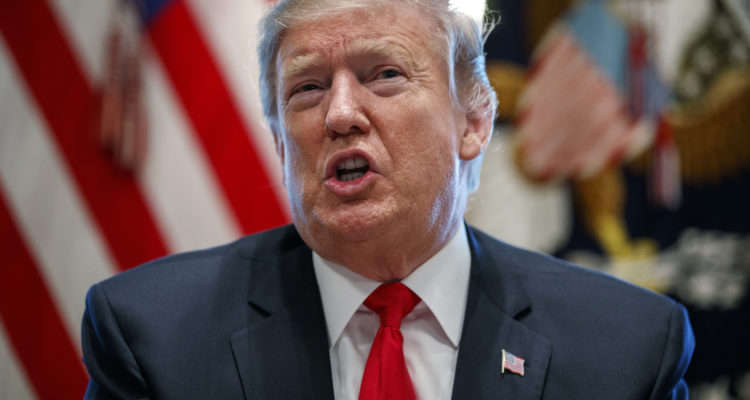The president’s outrage was in reaction to a report that the U.S. is increasing its cyber attacks on Russia.
By Batya Jerenberg, World Israel News
U.S. President Donald Trump reacted angrily Saturday to a New York Times article that day regarding alleged secret American cyber attacks on Russia, saying the paper had committed “a virtual act of treason” and then calling it fake news.
According to current and former American officials, the Times reported, the United States had inserted malware into Russian power grids and other targets in preparation for a counterattack in the event that Russia attempts a virtual assault against American infrastructure.
The report also said that intelligence officials did not inform the president about actions they have recently taken against Russia “for concern over his reaction — and the possibility that he might countermand it or discuss it with foreign officials.”
The president had allegedly given classified information regarding the Islamist terrorist group ISIS to the Russians in 2017, according to the Washington Post – a charge the White House firmly denied at the time.
Trump’s first tweet in reaction to the current story expressed incredulity that the paper had printed it, calling it “a virtual act of Treason by a once great paper so desperate for a story, any story, even if bad for our Country.”
He then said it was fake news.
“….ALSO, NOT TRUE!” he wrote. “Anything goes with our Corrupt News Media today. They will do, or say, whatever it takes, with not even the slightest thought of consequences! These are true cowards and without doubt, THE ENEMY OF THE PEOPLE!”
The Times responded that “accusing the press of treason is dangerous” and defended itself against the serious charge by saying that Trump’s own people had okayed the report.
“We described the article to the government before publication,” the paper posted on Twitter. “As our story notes, President Trump’s own national security officials said there were no [national security] concerns” about what had been written.





